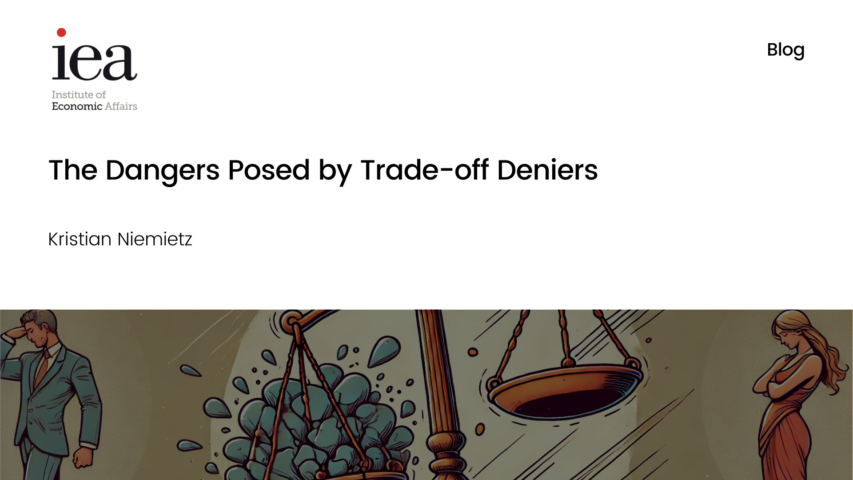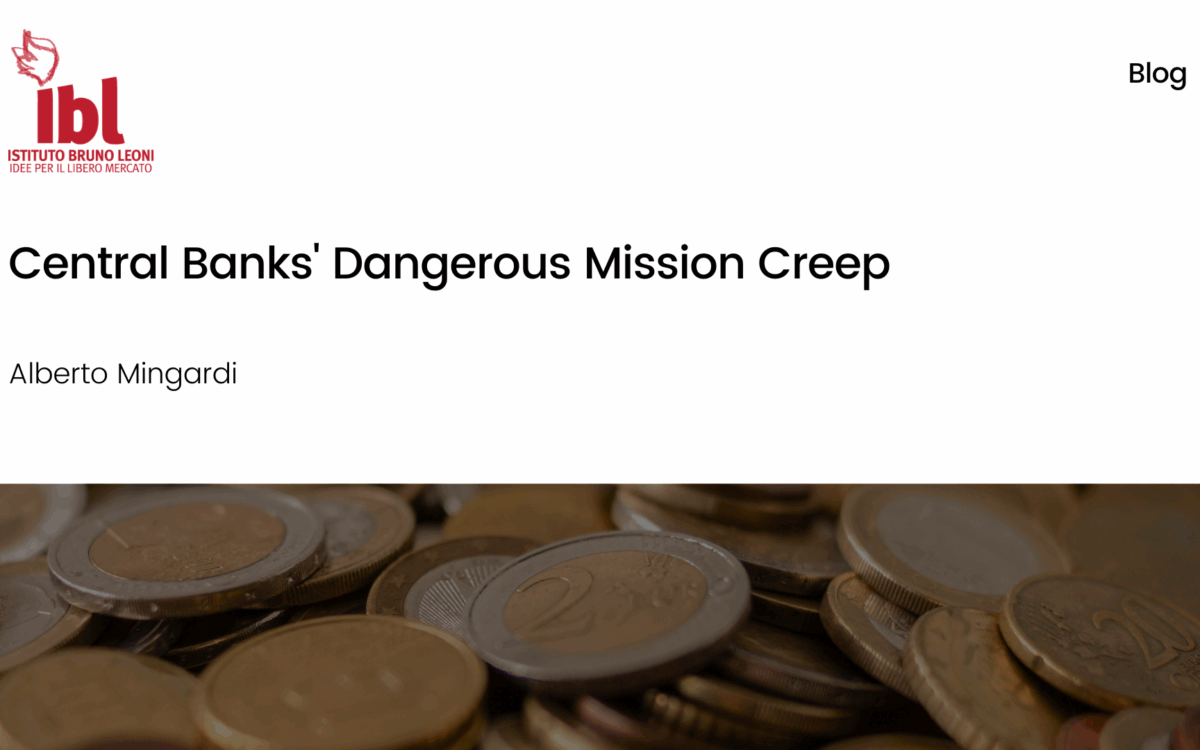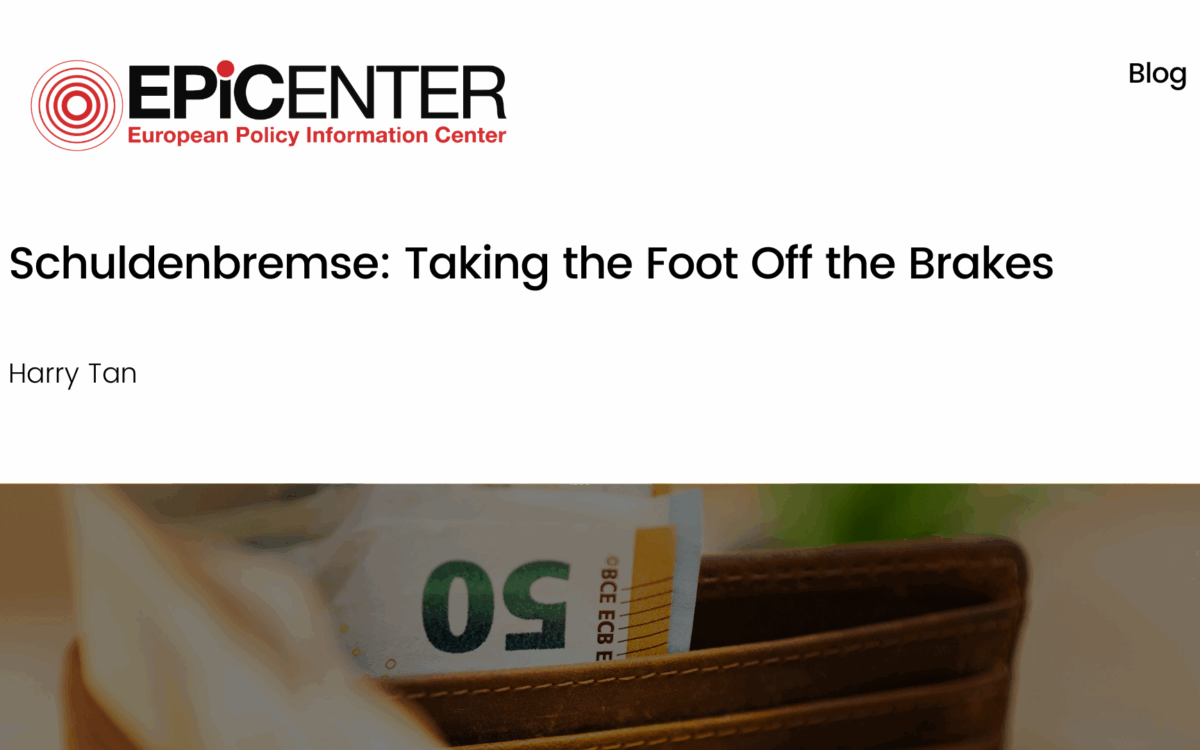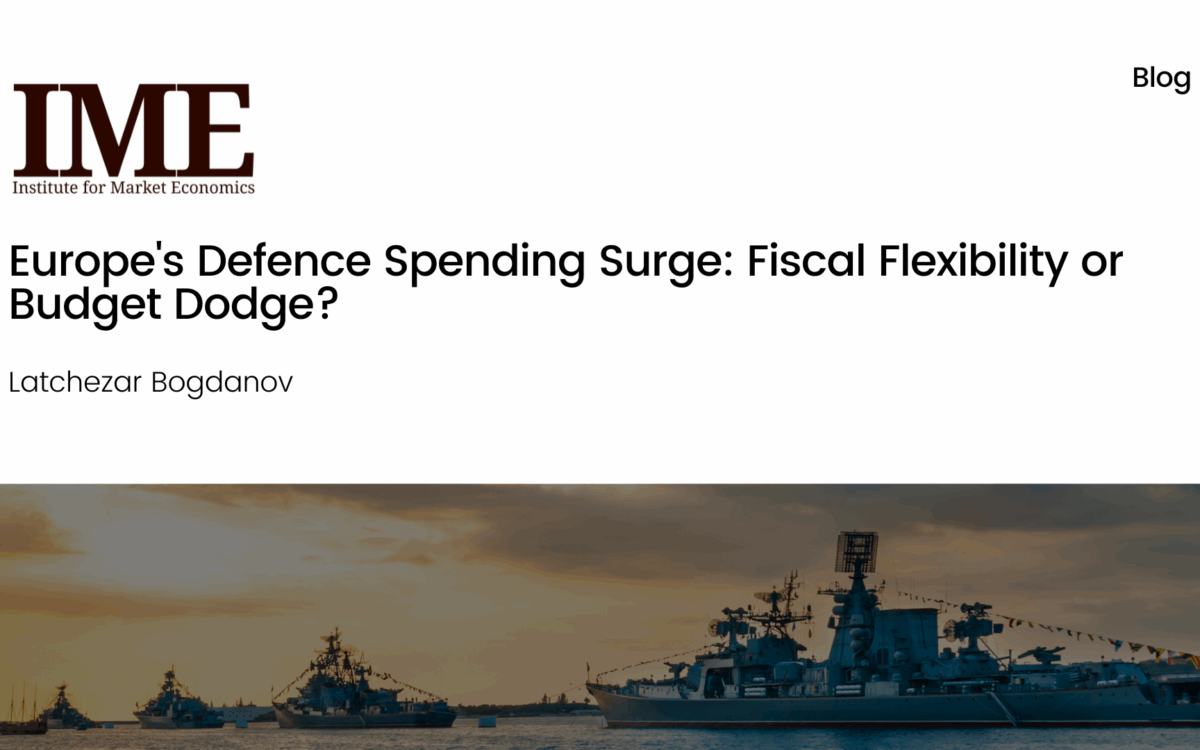The Dangers Posed by Trade-off Deniers

The Dangers Posed by Trade-off Deniers
30 April 2023
Harry Lime, the villain of the classic movie The Third Man, is an early example of the kind of smart movie villain who is not simply randomly bad, but who rationalises his actions in ways that, in their own twisted way, make some sense. Lime declares that there is nothing wrong with causing large-scale suffering, because:
“[I]n Italy, […] they had warfare, terror, murder, and bloodshed, but they produced Michelangelo, Leonardo da Vinci, and the Renaissance. In Switzerland, […] they had 500 years of democracy and peace. And what did that produce? The cuckoo clock.”
It is a memorable line, which almost makes Lime a proto-version of a Bond villain. It is, however, very bad economics. Switzerland has produced a lot more than cuckoo clocks. This was already true at the time the movie was made, and it is even truer today.
Switzerland is almost two thirds richer than Italy, in per capita terms. They are also more than one-and-a-half times as rich as the UK, a third richer than Germany, a quarter richer than Austria, and one tenth richer than the United States and oil-rich Norway. With a smaller population than Greater London, they account for roughly the same share of global exports as Mexico or India, or as Brazil and Indonesia combined. That takes a little bit more than cuckoo clocks.
The reason why Switzerland’s economic clout is easily underestimated is that they sell a lot of things that, as end-consumers, we do not directly see, such as high-end capital goods, industrial chemicals, and high-end services that happen behind the scenes. If the world economy were a concert, Switzerland would be supplying the sound system, and organise the logistics around it, but they would not be on the stage singing.
Most people may not be able to name a lot of Swiss brands off the top of their heads. But if the Swiss economy shut down tomorrow – we would notice it.
A similar bias is at work when anti-capitalist environmentalist groups like Just Stop Oil, Extinction Rebellion and (for lack of a better name) the Greta movement describe the role of fossil fuels in the economy.
I’ll spell out, in a minute, what I mean by that, but first of all, a little recap of where we are with environmental policy. We hear a lot about “climate change deniers”, but I haven’t actually met one of those in years, and I believe that their influence is vastly overstated. The late Nigel Lawson, for example, who was a hate figure for eco-warriors, was not a “climate change denier” at all. Lawson did not believe that the impact of climate change would be catastrophic, but he did not dispute the existence of the greenhouse effect, or our contribution to it, or the various problems it would cause in some areas. He even accepted the case for a carbon tax.
Everyone whose voice is remotely relevant in this debate accepts that man-made climate change is real, and that we should do something about it. As a result – we are doing something about it. A lot. Since the late 1980s, we have enacted a raft of ambitious climate change policy measures, imposing a great cost on ourselves in the process.
It has had some effect. Since 1990, the UK’s CO2 emissions have fallen by about half, to 5.2t per capita, which is their lowest level since 1860. Yes, some of this has been achieved by outsourcing carbon-intensive production. But even on a consumption-basis, emissions have fallen by a third since 1990, to just under 7t per capita. Some countries are even “greener”, but there is currently no high-income economy anywhere in the world where consumption-based CO2 emissions are much below 5t per capita. Globally, there is a clear positive correlation between living standards and consumption-based CO2 emissions, and 5t seems to be about as low as we can currently go if we still want to lead first-world living standards. Decarbonisation is desirable, but, like a lot of good things, it is also expensive. It comes at a real economic cost.
If you believe that we should cut emissions further and faster, you have to honest with people, and tell them about that cost. You cannot pretend that we live in a world without trade-offs, where you can slash carbon emissions without anyone noticing.
But this is precisely what anti-capitalist eco-movements do. The Swedish branch of Extinction Rebellion recently summed up that mindset when they posted:
“Our planet isn’t dying because regular people won’t go vegan or only take cold showers. It’s dying because a handful of corporations and billionaires profit from pumping astronomical amounts of pollution into the air and water.”
In other words: don’t worry, Joe Bloggs, nobody wants to make you poorer. Climate change has nothing to do with you anyway. It’s all just about a handful of corporations and billionaires. There are no trade-offs. There are just a few bad people who need to be taken out, and the climate will be saved at no cost to anyone else.
It is a variant of the “100 companies are responsible for 71% of global carbon emissions” shibboleth.
This is all cuckoo clock economics. Of course, you, as an end-consumer, do not directly consume fossil fuels. Of course you do not go to the supermarket to buy a barrel of crude oil, which you then burn for fun in your garden. Of course you do not personally dig oil wells with your bare hands. But this is simply because we live in more complex economies, where there are multiple stages of production, some of which are a bit more removed from – and not directly visible to – the end-consumer.
However, if you think that they therefore have nothing to do with you, or that you would not notice the difference if they were shut down – you must be either a 5-year-old child, or a member of Just Stop Oil.
This article was originally published on the IEA’s blog.
EPICENTER publications and contributions from our member think tanks are designed to promote the discussion of economic issues and the role of markets in solving economic and social problems. As with all EPICENTER publications, the views expressed here are those of the author and not EPICENTER or its member think tanks (which have no corporate view).



